Paperweights, used to hold down papers, and most commonly made in glass, evolved in Venice in the early nineteenth century, and spread to France via Bohemia about 1845, where the finest examples were produced by three factories: Baccarat, Clichy and St Louis. Examples from these manufacturers are mostly unmarked and widely faked and imitated and thus a minefield for the uninitiated. The most popular motif is millefiori ('thousand flowers'), though fruit, single flowers, insects, and other small objects are often used as well as portraits and view. The cheaper paperweights use air bubbles as decoration. The classic paperweights are round
more...
and domed, but lesser weights were also made in the form of pyramids and rectangles. The early period of paperweights is reckoned to have ended in 1870 but some 20th century manufacturers such as Lalique, Kosta Boda, Whitefriars and Caithness Glass have produced some fine examples. The great majority of paper weights are unmarked, and glass rarely shows its age.
Paperweights are also made in gold, silver, silver plate, hardstone, amber, ceramic, ivory, timber and other materials.
less...
Whitefriars glass is a range of high-quality household glassware that was produced by the British glass manufacturer James Powell & Sons, which was founded in London in 1834. James Powell & Sons began as a family business, and specialised in the production of stained glass, and gained a reputation for producing some of the finest stained glass windows in Britain.
In the late 19th century, James Powell & Sons began to experiment with new glassmaking techniques, and in the early 20th century, the company began to produce a range of high-quality art glassware, including vases, bowls, and other
more...
decorative objects. The company became known for its innovative designs and use of vibrant colors, and its glassware was highly sought after by collectors and art enthusiasts.
One of the most iconic and enduring designs produced by James Powell & Sons was the Whitefriars range, which was first introduced in the 1920s. The Whitefriars range was characterized by its clean, modernist lines and use of bold, geometric shapes, and it quickly became one of the most popular and successful glassware lines of the era.
Throughout the 20th century, James Powell & Sons continued to produce a wide range of glassware, including both art glass and functional glassware such as drinking glasses and tableware. However, the company faced increasing competition from other glass manufacturers, and in the latter part of the century, it struggled financially.
In 1962, James Powell & Sons was acquired by Whitefriars Glass Limited, which later merged with another glass company to become Whitefriars Holdings Ltd. In 1981, Whitefriars Holdings Ltd. was acquired by Waterford Glass Group, which then became Waterford Wedgwood plc, and the Whitefriars range was eventually discontinued.
less...
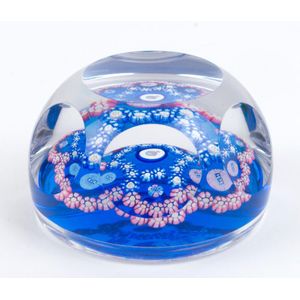
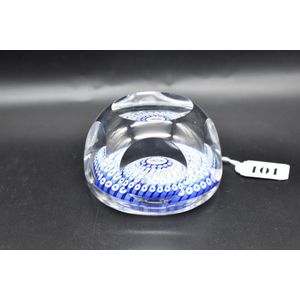
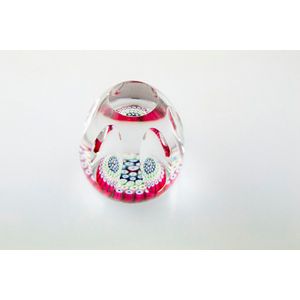
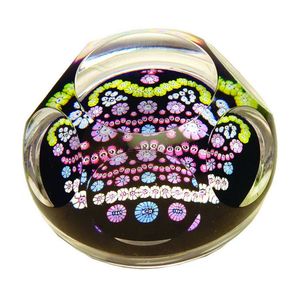
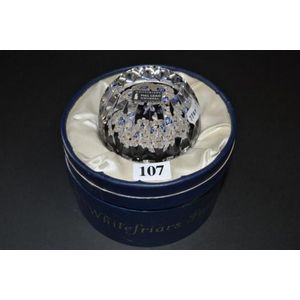
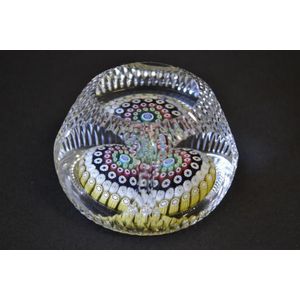
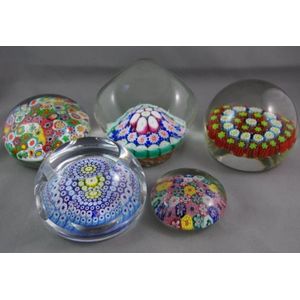
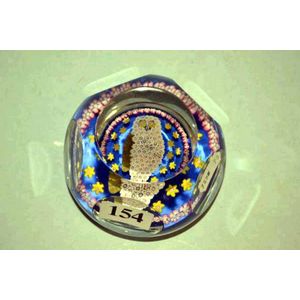
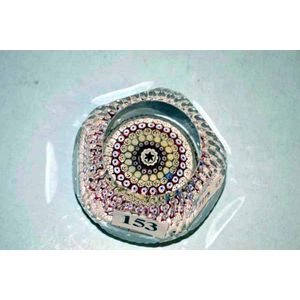
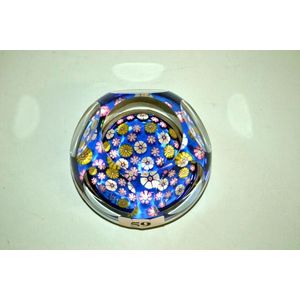

 Loading more...
Loading more...